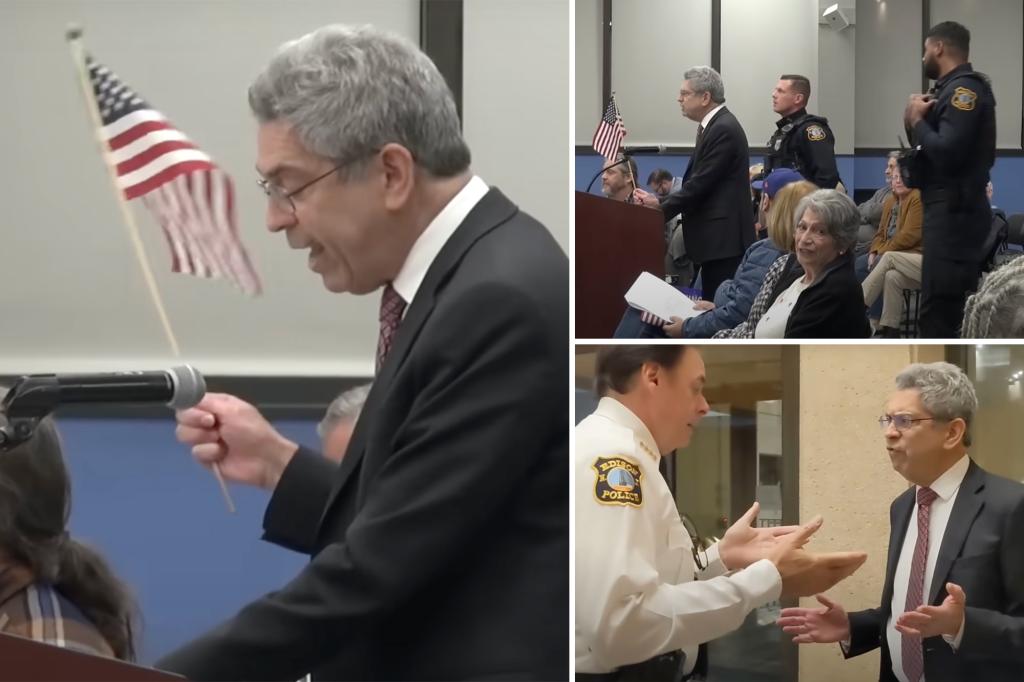A recent incident at a New Jersey town council meeting sparked significant controversy when local attorney Joel Bassoff was removed by police for waving an American flag in protest of a new rule prohibiting the use of “props” during public commentary. On November 25, during an Edison Township Council meeting, Bassoff sought to express his discontent with this new ordinance, which restricts residents from using items like the flag and even the U.S. Constitution while addressing the council. His act of holding up the flag was a symbolic gesture aimed at championing constitutional values and freedom of speech, especially in light of what many residents viewed as an affront to their rights.
As Bassoff argued for his constitutional right to use the flag, Council President Nishith Patel attempted to maintain order, warning him about the decorum of the meeting. Despite the council’s pushback, Bassoff passionately defended his point, asserting that the ordinance was misguided and suggesting that the council should consult with competent legal counsel to reevaluate its standing. His outspokenness resonated with fellow residents, many of whom voiced their support both during and after his remarks, emphasizing the importance of safeguarding rights guaranteed by the Constitution.
The situation escalated when police were called to remove Bassoff after he attempted to reclaim his seat following an initial warning from the council president. A burst of disapproval from the audience highlighted the growing unrest over the council’s heavy-handed approach to public commentary. This situation was compounded earlier in the meeting when another resident was similarly ejected for displaying the U.S. Constitution, raising questions about the ordinance’s implications for civic engagement and the expression of patriotic sentiments during public forums.
Residents expressed their indignation at the new ordinance, which they saw as an insult to the very principles of democracy. One resident, Maryann Hennessey, articulated the sentiment prevalent among attendees, stating that considering both the American flag and the Constitution as mere “props” is a devaluation of their profound significance and the ideals for which they stand. The perception that the council sought to manipulate public decorum through such measures only intensified the frustrations among community members, many of whom felt emboldened to voice their dissent during the deliberations.
The recently enacted Ordinance 2239 aims to impose stricter guidelines to maintain order during what have been described as often chaotic town meetings. While the ordinance does not overtly ban symbols such as the flag or Constitution, council leaders contended that these items could disrupt proceedings and hinder a respectful environment. The specifics of the ordinance extend beyond prop usage to also restrict the duration of speaking time for residents, a move perceived by many as an infringement on their rights to free expression and a means to sidestep accountability from the elected officials.
The confrontation illustrates the ongoing tension between local governments and their constituents regarding civic participation and the expression of dissenting views. The application of such a prop ban not only raises concerns about First Amendment rights but also reflects a larger debate over how municipalities can balance order with public expression in an era where civic engagement is increasingly critical. Ultimately, the reactions from the community underscore the vital role of public discourse in democracy and highlight the potential backlash faced by authorities attempting to stifle expression, thereby setting the stage for future discussions surrounding civic engagement and local governance.

